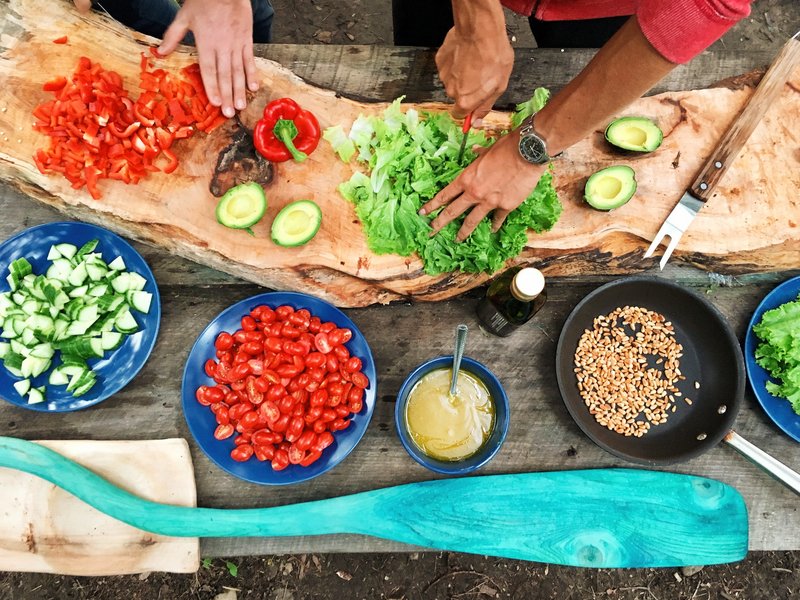
Education
Nutrition and sustainable food are confusing issues for many people but food co-ops and other community food projects are a great opportunity to help customers, volunteers and the wider community gain a clearer understanding.
They can also help point people to other services such as healthy eating programmes or food growing schemes. Such activities could be run with support or funding from your local NHS clinical commissioning group who may also be able to offer staff time from health promotion workers or nutritionists to help run events or training.
Alternatively you could work in partnership with other local organisations such as Sure Start or children's centres that want to promote their services to particular target groups. When planning educational activities, it might be a good idea to map local organisations who could support your activities, as this could also be used to create a useful directory for your customers (this can be done as part of your Needs Assessment).
Food co-ops often provide information or run activities on subjects such as:
- Healthy eating
- How to prepare, cook and store different foods
- Seasonal and local produce
- Reducing food and packaging waste
- Food miles
- Organic food
Education work can be quite formal, for example by having an organised talk, training sessions, cookery courses or demonstrations or educational visits to other projects. Alternatively, they may be informal, for example by offering cooking tips when people are shopping at the food co-op or by simply giving out educational leaflets, newsletters or recipe cards.
Depending on the space and facilities, you might be able to run some activities during the food co-op's operating hours, but many people find it easier to run sessions at separate times.
You could run educational activities at other community events such as church, school or village fairs which can also help promote the food co-op and hopefully attract new customers. If your money and time are limited it may be useful to target particular groups of customers or to focus on training your volunteers, who once they understand the key messages, will be able to share their knowledge with others.
Key things to think about:
- You need to pitch any educational work at the right level so it's useful without being patronising or too complex.
- Educational materials can be made available but it is important not to swamp your customers with too much information too often.
- Find out what resources are already available (especially those that are free) don't waste time and effort reinventing the wheel.
- Check the materials used are up to date, attractive and user friendly.
- Assess the skills of staff and volunteers who will run the education activities. Are they the right people to do it? Do they need extra support or training?
- Incorporate educational messages in other food co-op publications, for example a newsletter, posters or recipe cards.
To find more useful food co-op related information visit our homepage
Food Co-ops toolkit: The Food Co-ops Toolkit will give you all the information you need to set up your own food co-op.
Sustain
The Green House
244-254 Cambridge Heath Road
London E2 9DA
020 3559 6777
sustain@sustainweb.org
Sustain advocates food and agriculture policies and practices that enhance the health and welfare of people and animals, improve the working and living environment, promote equity and enrich society and culture.
© Sustain 2024
Registered charity (no. 1018643)
Data privacy & cookies